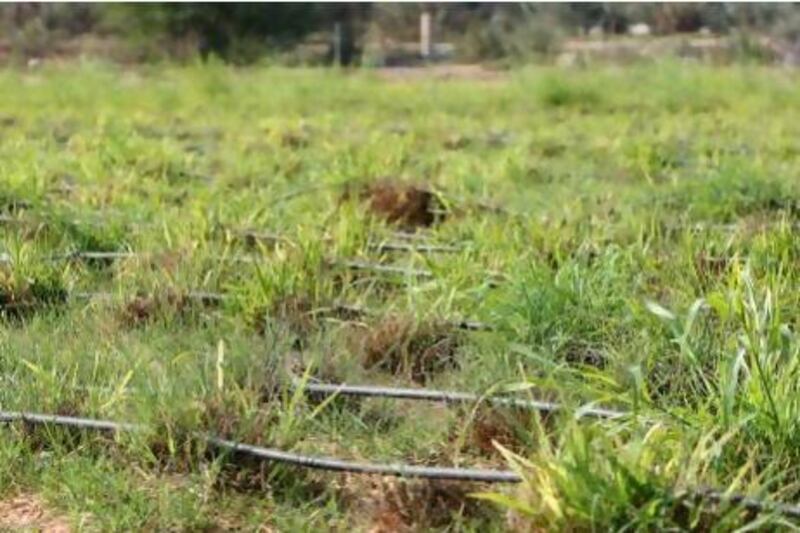ABU DHABI // Treated waste water is now being used to irrigate food crops on hundreds of farms across the emirate.
The Environment Agency - Abu Dhabi project has managed to treat almost 27 million litres of water a day to a standard good enough for agricultural use.
The water is now being used on 220 farms across the emirate.
"The project is now complete and we [succeeded] in treating water at more than the tertiary level," said Dr Mohamed Dawoud, the agency's manager of water resources.
"We're continuing to assess it to extend it to other farms in the future."
He was speaking on the sidelines of the International Water Summit.
The water goes through four levels of treatment, removing lumps, suspended solids, nutrients and heavy metals, and then bacteria and salts.
At the third level the water is regarded as suitable for landscaping and recreational areas.
But advanced treatment in a plant at Al Nahda refines it to the fourth level, making it safe to use on crops destined for the table.
The move could not come early enough as experts stressed the severe depletion of ground water.
"These farms were using ground water, which is quite saline," said Dr Dawoud. "We are also using some fresh water, which we consider a reserve for the future.
"This will help because it will stop deteriorating our aquifer system and replace it with good-quality water that will benefit the environment, save our resources and increase the efficiency of reusing resources that we are discharging."
Farms use about 1.5 trillion litres of water a year for irrigation, half the emirate's total water use.
Reducing the amount of water taken from the aquifer system and using new irrigation technologies could extend its reserve to 100 years.
"Water in the [Arabian] Gulf is very harsh," said Dr Hassan Fath, a professor at the Masdar Institute of Science and Technology.
"It is high in temperature, high in salinity and high in marine life. But water's our health so we must address all its issues."
Dr Dawoud hopes to be able to expand the project soon to all farms across Abu Dhabi.
"We're investing in the collection of the waste water and we're treating it to a very high level with good quality," he said. "It's a very important resource - we should not waste it."





